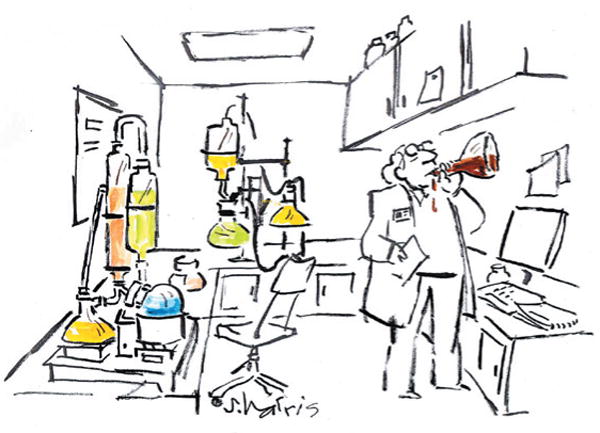There is a reported correlation between chocolate consumption by different nations and the number of Nobel laureates in their populations (F. H. Messerli New Engl. J. Med. 1562–1564; 2012). So what are the chocolate habits of Nobel prizewinners?
We surveyed 23 male winners of the Nobel prize in physics, chemistry, physiology or medicine, and economics. Ten (43%) reported eating chocolate more than twice a week, compared with only 25% of 237 well-educated age- and sex-matched controls (P = 0.05; see B. A. Golomb et al. Arch. Intern. Med. 172, 519–521; 2012). Three proffered that their chocolate consumption had indeed contributed to their Nobel prize, but most disavowed any link. Two attested that they had won the prize in spite of their chocolate habits (see also ‘Nobel laureates on chocolate’ and go.nature.com/copuha).
Some laureates might understate their chocolate consumption to amplify the impression that native prowess led to their prize, producing bias to the null. However, given favourable chocolate–mortality associations, chocolate aficionados might have survived to get their just desserts.
Another caveat is that the laureates’ responses, like chocolate consumption itself, could be tongue in cheek.

COCOA CONNECTION.
Nobel laureates on chocolate
“Laureates are handed chocolate replicas of the medal in gold foil at the Nobel ceremony. This must mean that the Nobel Foundation thinks chocolate is important.”
“My wife is a chocoholic but so far has not received the phone call.”
“Chocolate made me who I am today.”
“The correlation could stimulate even greater efforts to compete with the Swiss, French and Belgians.”
“Your research is poised precisely in the vast space between balanced objectivity and total confusion.”
“I eat a lot of wine gums and biltong in case you are considering snacking in general.”
“I am upping my chocolate consumption to recapture my youthful IQ.”


